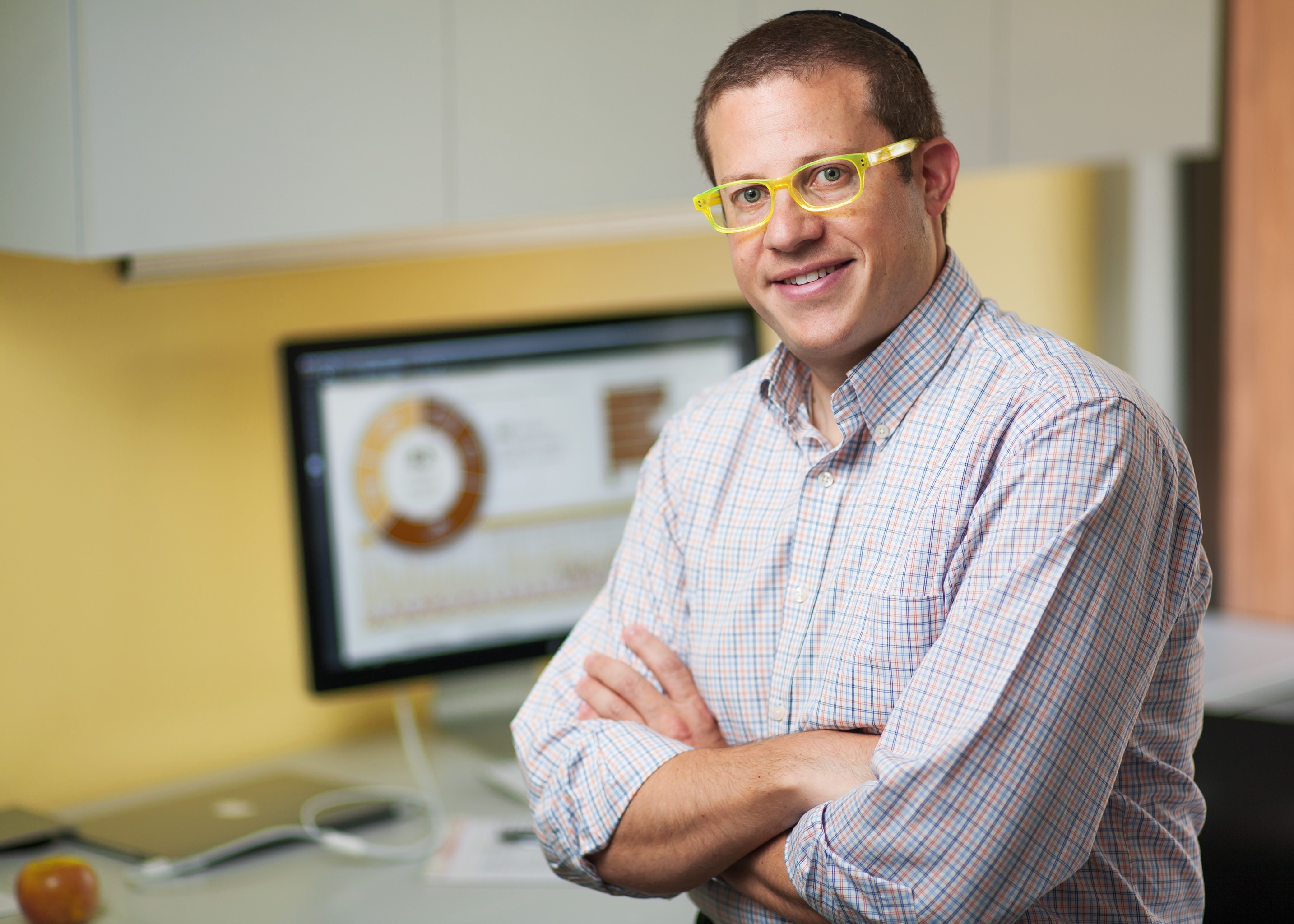A Career in Content Creation
Touro's Lander College of Art & Sciences (LAS) Alum Mordy Golding Details How His Role at LinkedIn is Helping Global Professionals Expand Their Professional Skill Set

LinkedIn Learning offers thousands of courses to help professionals learn new skills, brush up their credentials, or get a LinkedIn certificate to help them stand out to prospective employers. Those courses are created by Mordy Golding and his team. Golding shares how LinkedIn can help you jump start your career and take it to the next level.
Content strategy and content marketing are hot fields right now. Can you talk a bit about what you do?
Content Strategy is certainly a term that most people associate with marketing these days, but in my case it’s different. Most people create marketing content to sell other products or services, but we create learning content in the form of high-quality online courses. In my role, I’m responsible for all the English-language content we publish, which is about 1600+ courses per year. I oversee a team of incredibly talented professionals who decide what topics we cover, what specific courses we’ll create, and which instructors and real-world experts we’ll use.
I get to work with incredibly talented people, and the scale at which we operate translates to new challenges every day. LinkedIn is a large Silicon Valley-based company, so we have lots of perks and nice offices around the globe. But our mission—to bring economic opportunity to every member of the global workforce—is what drives the people that work here and gives meaning to what we do every day.
Any tips for making the most out of using the LinkedIn platform?
Our data shows that people start getting real value out of LinkedIn once they’ve reached at least 30 connections. So, having a great profile and adding connections is a great way to start. The best way to get the most out of LinkedIn is to actively participate. Share your opinions, comment on someone’s post, write about something you’re working on or something you’re passionate about. This leads to opportunities for potential work, jobs, or to network with like-minded professionals who can help you in your career.
Why should students and professionals consider taking the online courses through LinkedIn? What can they expect to learn? How is it different from what the students might be learning in their traditional coursework?
I think people often think our online courses are meant to replace what they learn in school. But we consider our courses post-secondary education. They are meant to augment traditional education. Whereas college courses last 12 weeks, you can often complete online courses in a few hours. More importantly, you can learn just what you need or just what interests you. If you want to go into marketing, you can take a few online courses and see if it speaks to you.
Additionally, leveraging online courses can give you the real-world skills companies are looking for. If you’re a professional or you’re looking for a new job, taking online courses can give you an edge over your peers or your competition. This is especially true today where technology changes so quickly. Our data shows that skills have a shelf life of about five years, so having an “always be learning” growth mindset is more important than ever.
How did your experience at Touro help shape your career path?
I majored in Computer Science, but what has had the most impact on my career were all the communication and writing courses I took. Without question, those classes set me up for success. I have published numerous books and have presented on stage to thousands of people at conferences that have opened new doors and opportunities. And in today’s world, where email and documents are at the core of every job, the development of writing and speaking/communication skills have given me an edge.
What advice do you have for our students as they think about their future careers?
I think when people enter college, they focus on what they think their job will be. I’m going to be an accountant... a lawyer… a marketer, etc. But I’d urge students to focus instead on what they enjoy doing or what specific topics or areas interest them most. Ask most successful people what got them there and they’ll tell you that you must work hard. If you love what you do and you’re genuinely curious about always learning more, working hard will come easy to you — it won’t feel like work. But most of all, focus on growing your soft skills — communication, analytical thinking, creativity — because technology is always going to change industries and the tools we use, but those skills will help you navigate and succeed in life.

